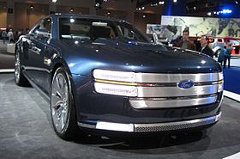
Christian primary and secondary education (sometimes called “Christian Day School”) became popular among fundamentalists during the 1970s. While some have alleged that the Christian school movement was a response to racial integration,1 it was more likely a reaction against the increasingly vicious secularism of public education. For a generation, many Christian parents sent their children to Christian schools, even when the cost of tuition meant significant financial sacrifice.
Over the past decade, however, most Christian schools have begun to decline. Administrators speculate about the reasons, but at least a few seem pretty obvious. These are generalizations that will not hold in every instance. Certain tendencies, however, can be observed more often than not.
First, Christian schools have not typically produced a better academic product than public education. True, the average test scores from Christian school students are higher than those of public school students. That is partly because public schools are required to accept students (including special education students) whom Christian schools uniformly reject. Take the top ten percent of graduates from the typical Christian school, and compare them to the top ten percent of graduates from the typical public school, and you will likely find that the public school graduates are better prepared.
A second reason that Christian schools are in decline is because they do not generally produce a better quality of Christian. Granted, the environment of a Christian school does shield its students from the most brutal influences of the secular school environment, such as rampant drug use and open promiscuity. It also grants Christianity a normative status, so that a student’s faith is not overtly and constantly under attack. Nevertheless, graduates of Christian schools do not seem to be noticeably more spiritually minded than Christian graduates of public schools. The real test is in what happens to Christian school students after they graduate. How many of them are walking with the Lord five years later? The proportions do not seem markedly higher for Christian school alumni than for other Christians of the same age.
 Read
Read  Read
Read 

Discussion